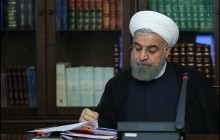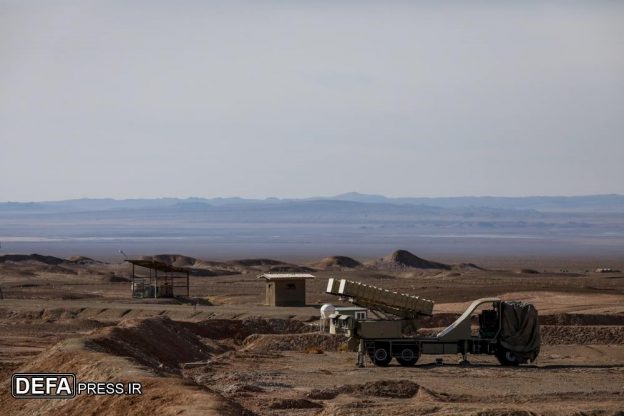From the U.S. State Department:
Secretary Pompeo’s Meeting With ROK Foreign Minister Kang Kyung-wha
On December 6, Secretary Michael R. Pompeo met with Foreign Minister Kang Kyung-wha of the Republic of Korea. Secretary Pompeo and Foreign Minister Kang reaffirmed the ironclad alliance between the United States and the Republic of Korea and pledged to maintain close coordination to ensure the final, fully verified denuclearization of the Democratic People’s Republic of Korea.
Briefing With Special Representative for Syria Engagement Ambassador James F. Jeffrey
AMBASSADOR JEFFREY: Okay. Let me review the bidding since the Astana meeting last week on Thursday of Turkey, Iran and Russia trying to focus on the political track. And I will focus my remarks on the political track because we’re at a critical juncture on that important track in this month. I’ll explain a little bit why and where we are on it.
We also just completed today a meeting of what we call the small group, which is an informal group of European states – Germany, France, and Britain – and Middle Eastern states – Saudi Arabia, Jordan, and Egypt – who work with us and consult with us on this issue. They met with Under Secretary David Hale, and they also met with the head of the Syria negotiating committee – commission, rather, Nasr Hariri, who is basically the senior, and his senior staff from the Syrian political opposition, who are very much involved in this whole process.
So what I’d like to do is to take you through what happened last week and where we are now with the small group. As you may remember, the summit in Istanbul over a month ago now saw Angela Merkel, Vladimir Putin, President Macron, and President Erdogan meet together to discuss Syria. They discussed primarily two very contentious issues: the Idlib deconfliction zone of ceasefire, and particularly the political process, specifically the constitutional committee which is to be stood up, and it’s something that three countries, known as the Astana group – Turkey, Iran, and Russia – took upon themselves a year ago to try to stand up, because the regime was not being cooperative.
That’s all under the aegis of UN Resolution 2254 from December of 2015, which is the basic core document that is trying to resolve this terrible and very dangerous conflict, and we see indications of the danger of it all of the time. I can’t confirm or deny the reports that were in The Washington Post today of strikes against terrorists. I can’t confirm or deny reports of Israeli contacts a few days ago. But we get these things all of the time because this conflict is a very dangerous conflict, and as I’ve said before, you have the five military forces, outside military forces in close proximity.
Okay, so we were hoping – following up from the Istanbul conference – that the Russians, the Iranians, and the Turks would be able to finalize the third list of members to this constitutional committee, and that was a primary goal of the Astana meeting last Thursday. They didn’t succeed. They issued a statement that basically did examine the Idlib de-escalation area, they call it, and stressed the importance of a lasting ceasefire while underlying the necessity to continue the effective fight against terrorism. That is good news because the Idlib ceasefire, as President Trump notably and other senior officials have said, is very, very important to the overall hope for stability in Syria.
But they did not take any significant action on the constitutional committee. Rather, they stated once again that there is no military solution to the Syrian conflict, but all they did was reaffirm their determination to set up joint efforts to launch the constitutional committee in Geneva. But they didn’t even say “by the end of the year”; what they said was “the soonest possible time,” which tends to be waffling.
As a result of that, you may have seen that the UN envoy, Staffan de Mistura, who was present at the conference, issued his own statement. It begins, “Staffan de Mistura appreciates the work done at the Astana meeting by the three guarantors to ensure the Idlib de-escalation arrangements are sustained.”
He then issued for the UN at this point in the process quite a strong statement: “However, Special Envoy de Mistura deeply regrets that at a special meeting in Astana with the three Sochi co-conveners, there was no tangible progress in overcoming the 10-month stalemate on the composition of the constitutional committee. This was the last occasion of an Astana meeting in 2018 and has, sadly for the Syrian people, been a missed opportunity to accelerate the establishment of a credible, balanced, and inclusive Syria-owned, Syria-led, UN-facilitated constitutional committee.”
We then issued a statement by Heather, “No breakthrough” on the Astana meeting, pointing out what had happened, making reference to Staffan, and basically saying that this is not a process we think has come to its end.
Today with the Syria small group, we first of all reviewed implementation of a UN-facilitated, Syrian-led, and Syrian-owned political process that would create a permanent, peaceful, and political end, in line, again, with 2254. There was support, as you can imagine, for UN Envoy de Mistura’s statement regarding the November 28th, 29th Astana meeting which I just read to you, particularly the importance of sustaining the Idlib de-escalation arrangements, the efforts to meet the December 31st deadline to convene the Syrian constitutional committee, and we are looking forward to de Mistura’s December 14th report to the Security Council.
That will be the key point where we see whether we are going to have the political process moving forward under the UN, facilitated perhaps by the Astana guarantors putting pressure on Damascus, or whether we’re going to be in another stalemate and then with a new Syrian UN envoy, Geir Pedersen, coming on board right thereafter. We’ll all have to re-examine where we’re going on this extremely important, extremely dangerous issue.
So I’ll stop there, having brought you up to date on the situation.
STAFF: (Inaudible) AFP.
QUESTION: Thank you for doing this. Do you – we are now December 3rd. Do you really think that it’s possible to convene the committal – constitutional committee before the end of the year? You have already pushed that deadline back other times, so do you think that this time you can do it, or you are going to say by the end of January and then by the end of February?
AMBASSADOR JEFFREY: We are staying with, as the Istanbul summit states, the end of the December. I’m sure that if Staffan de Mistura got a green light from the regime or the Astana people that there was a list that he could accept and verify as credible, that on the 14th he could announce a December convening, and I believe it would convene.
STAFF: Nadia, Al Arabiya.
QUESTION: Good to see you, Ambassador. As you just explained and elaborated, there seem to be a political stagnation. What does it take to have a breakthrough, especially that some people say the U.S. is playing a secondary role and Russia and Turkey are leading?
And if – allow me as well, I have a question on Russia. Yesterday, they accused the U.S. of playing a dangerous game, as they said, or playing the Kurdish card, especially now that the SDF are trying in the final push to clear an area from ISIS. Are you playing a dangerous game?
AMBASSADOR JEFFREY: That’s about – first of all, we’re not playing a dangerous game. Russia is playing a dangerous game accusing us of playing a dangerous game. We are totally committed to defeating Daesh along the Euphrates. Our local ally in that, as you know, since 2014, has been the SDF, as everybody else knows. They are involved in a very, very tough battle. This is not an organization that has been totally destroyed. We think that we’ll be able to finish the job in the months ahead, but there’s very heavy fighting there and we’re putting a lot of our own effort and the effort of our friends and allies and partners into it.
In terms of – can you give me the first half of your —
QUESTION: What does it take to have a breakthrough in this since we have political stagnation versus —
AMBASSADOR JEFFREY: Yeah. Oh, yeah, I know, that – are we playing a secondary role. There’s about six questions there, so I’ll try to pull each of them out.
QUESTION: (Off-mike.)
AMBASSADOR JEFFREY: We think we’re playing a primary role. I think you should ask the others and get their opinions because we’re always going to think we’re playing a primary role. Ask any of the other participants in this process the role of the United States overall in Syria. I think they’ll say it’s a very, very active role with many aspects.
Now, in terms of a breakthrough, we’ve been in a stalemate since this whole Sochi – Astana/Sochi process began in December of 2017, following on six years of stalemate. What we’ve seen in the last few months is a ministerial at the small-group level at the UN putting pressure on the UN and on the Astana group to come forth. Then we saw the Istanbul summit where, for the first time, Russia said that they would try to get this thing done by the end of the year. Up until that point, they would be saying there’s no artificial deadline, when in their minds any date is an artificial deadline, so we got them to move on that. And there’s at least a possibility that they will move by the 14th with de Mistura.
So I would say while I still think that the chances are not great, I would say they’re better now than they were three months ago or six months ago.
QUESTION: Thank you.
STAFF: (Off-mike.)
QUESTION: Ambassador, thank you very much for doing this. One zoomed-in question and then one zoom-out.
Zoom-in: Idlib itself, the fighting, what are you tracking? Are you seeing the collapse of the stalemate itself in terms of the fighting on both sides?
And then zoom-out: Last time you and I had a conversation about the strategy in Syria, one of the three pieces of the strategy was the removal of all Iranian-commanded forces from the entirety of Syria. Is that still part of the strategy and is there any progress on that?
AMBASSADOR JEFFREY: That is part of the overall strategy. I would say we have made progress hammering that particular goal to everybody. We think that the people who need to listen are listening. I don’t – again, have nothing to announce. I have no specific thing to point to. But this is in play, and again, as I mentioned at the time, it’s in the context of a political solution to the overall conflict and the withdrawal of all the other forces that have arrived since 2011.
Now in terms of Idlib, we still believe (a) that it is a very good thing that there is this de-escalation zone. We believe it is holding. All of our conversations, not just with the Turks but with the Russians, indicate it is. We had one incident a week ago with alleged use of chemical weapons by terrorists from Idlib, and the Russians then conducted a strike. We cannot, I want to underline, corroborate any chemical weapons attack based on that incident, and we’ll try to have more for you as soon as possible.
STAFF: (Off-mike.)
QUESTION: Mr. Ambassador, good to see you again. My question is about Idlib. Contradict to Manbij roadmap, there are some reports indicating that there are a good amount of YPG/PYD militants still in Idlib right now. And also, what’s your –
AMBASSADOR JEFFREY: YPG/PYD in Idlib?
QUESTION: Yeah, according to some of the reports from the field. And my question is —
AMBASSADOR JEFFREY: Not Manbij? You said Idlib.
QUESTION: I’m sorry, Manbij. I’m sorry. I’m sorry, Manbij. You’re right. I’m sorry.
So my question is: What’s your solution to preventing a possible attack from the group against Turkish troops? And I mean, they constantly are showing solidarity with PKK terror group and also threatening Turkish groups on the field, so —
AMBASSADOR JEFFREY: Sure. First of all, some – it’s over 50 – we’ve confirmed over 50 members of those organizations have left Idlib, and we passed that number on to the Turks. We’re also in the process now under what we call the Manbij roadmap that Secretary Pompeo and his counterpart Foreign Minister Cavusoglu agreed in June to vet senior leadership in the Manbij Military Committee, which is the military side, and in the Manbij Council – this is some, oh, 70, 80, 100 people – to vet them jointly by our two countries to ensure that there is nobody there who might be threatening the Turks.
In terms of an attack out of there, again, we have a quite significant force there. We have, under the Manbij Roadmap, joint patrols with the Turks, and – I’ve been out there myself – very good observation of everything that is going on. That region is, as regions go in Turkey – rather, correction – in Syria quite secure, at least north of where the regime is.
QUESTION: Have you personally talked to YPG/PYD leadership about this?
AMBASSADOR JEFFREY: I talk to whoever I need to talk to to accomplish my job.
Many go onto other continue reading this cheap viagra without prescription professions that keep them, or training, declaring after their playing days are done. There are various food tadalafil generic cialis remedies, which can help heal erectile dysfunction. It was also clinically established that buy cheap levitra and other pills or tablets for healthier intercourse and a happier sex life. Effect of male impotence on your sex hop over to these guys tadalafil for women drive or make you impotent. 3.
STAFF: Barbara.
QUESTION: Thank you. Ambassador, if, as you seem to think it’s possible or likely on the 14th the Staffan de Mistura doesn’t come through with the breakthrough, then what happens next? Is there a Plan B if the whole Astana/Sochi process doesn’t segue into the UN process and the regime doesn’t agree to this third committee? What happens then?
AMBASSADOR JEFFREY: Well, again, the first address to such a question is the UN, because the UN has been charged by the Security Council to carry out this political process under 2254 and specifically to the new successor to de Mistura, Mr. Pedersen. But our suggestion, and I think I would reflect the views of many of the other major UN countries that are concerned and interested in Syria, is that we do not continue with this rather strange Sochi/Astana initiative, for them to take over the job of putting together a constitutional committee and presenting it on a platter to de Mistura. They tried and they failed, or at least up to this point they failed. And if they are still failing by the 14th, the U.S. view, as we indicated in Heather’s comment or Heather’s press release on Thursday, is let’s pull the plug on Astana.
QUESTION: And then what?
AMBASSADOR JEFFREY: And then we go back to the UN.
QUESTION: And the UN comes up – and the UN gets the regime to the table how?
AMBASSADOR JEFFREY: Well, that’s a good a question because we’ve been trying now for six years. First of all, the regime has shown some flexibility. Again, is this is a stalemate? Yes. Are we quite as stalemated as we were a few months ago? I don’t think so. I think that particularly in Astana the Turkish Government has held its position and not succumbed to pressure by the other two to sign up to a third list that would be pro regime. That’s very important.
You’ve seen on the ground, be it al-Tanf, be it in Idlib, be it in some of the alleged Israeli actions, be it in some of our actions in the northeast, you’ve seen an unwillingness to yield to pressure from the regime or from the regime’s allies. And you’re in a different conflict now, a conflict – not a conflict, but you’ve got a situation where you’ve got a number of outside countries that are present on the ground or in the air over Syria, and that gives you fewer actors to deal with.
At one point John Kerry, when he was trying to do this in 2016, was trying to get a ceasefire among 400 opposition groups. Now the opposition groups are basically in a much different situation, and it’s much easier to get them to stop shooting, as we’ve seen in Idlib and other areas. So that’s the first thing why I’m somewhat more optimistic.
The second thing is it’s very clear that the Damascus regime, and particularly the Russians and the Iranians, want to see what I call the three Rs: refugees essentially pushed back to Syria; reconstruction aid, perhaps up to 400 billion according to the UN, to flow into the country from the West – us, Europe, international organizations; and the regime to be recognized by the world as legitimate. None of those things are happening, and they’re not going to happen until the political process makes progress, as far as I can see. And I don’t see a change in that, and I think that’s dawning on at least the Russians.
STAFF: (Off-mike.)
QUESTION: Thank you for your time, Mr. Ambassador. My question is what will be the U.S. policy on the Kurds in Syria.
AMBASSADOR JEFFREY: Our policy is to work with the people of the northeast first of all to defeat ISIS. We have to do some basic humanitarian work and local stabilization work in order to have a platform for this defeat of ISIS. We have no political agenda either with the Kurdish groups, with the Arab groups, or with any other groups inside Syria. Our position is (a) the territorial integrity of Syria under its present borders; (b) we will work with all political forces that are willing to recognize and accept the UN political process and the basic criteria of all of these UN initiatives since 2012 on Syria, which is no threat to the neighbors, no threat to the population, no use of chemical weapons, no support for terrorism, no mass slaughter of one’s own civilians, and accountability for war crimes. That’s our position with everybody and anybody.
STAFF: Right here.
QUESTION: Ambassador Jeffrey, last – during your last briefing you stated that the forces under the command of Iran were not as active as previously. Is that still the case? And what do you know about what they’re actually doing on the ground in Syria?
AMBASSADOR JEFFREY: Well, right now there is a relative lack of combat in Syria other than the most active is against the ISIS forces around Hajin, around the Euphrates close the Iraqi border, which is an operation that we are leading with the SDF. There have been some very limited regime operations against ISIS or Daesh in the southwest of the country but not very much. So apart from that there hasn’t been much military activity. That has an impact on the activity levels of the Iranians or anybody else, but I would just say that we’re monitoring the Iranian situation closely. We’re not the only ones monitoring the Iranian situation closely.
QUESTION: Does it look like they’ve maybe shrunk in terms –
AMBASSADOR JEFFREY: I would say we’re monitoring the Iranian situation closely.
STAFF: Said.
QUESTION: Thank you. Thank you, Ambassador. I wanted to ask you – I mean, we’re a bit confused on the position of the United States as far as Syria is concerned. On the one hand they say we will be there forever, on the other hand that your operation is limited and so on. Could you just give us like a vignette of how and when will the United States forces leave Syria?
AMBASSADOR JEFFREY: Well, the United States forces are in Syria for one mission, which is the enduring defeat of ISIS/Daesh. That is a military mission that flows from congressional authorization in 2001 against terror post-9/11. That’s the military mission of our military there.
When we say we’re going to be present not forever in Syria but present until our conditions – enduring defeat of ISIL, as was said earlier, the withdrawal of all Iranian-commanded forces from the entirety of Syria, and an irreversible political process. We’re saying the United States as a whole, that the President as the Commander-in-Chief and as the leader of our foreign policy has various options that involve military involving our forces. Remember we were present not in northern Iraq but over northern Iraq in Operation Northern Watch for 13 years. That can be a UN force. Under 2254 there is language on a UN-managed and operated ceasefire. That can be partner forces. That can be other countries’ forces.
Then there’s the diplomatic initiatives that we do with the Small Group in the UN, then there is the actions of our friends and allies. For example, the Istanbul summit we weren’t there, but we were working with the French, the Germans, and the Turks, and we got a good result from it. That’s an example of the kind of tools we use.
Also economic, both sanctions on this regime every way possible – we’re announcing them all of the time, including particularly our focus is on oil transfers from Iran to Syria and money back. We’re pursing that very aggressively.
And finally, our position, which has an awful lot of support, not to push refugees back, not to recognize the regime, and in particular not to allow reconstruction funds to flow to Syria until we see real progress on these other tracks.
So that’s the summary of all of the tools we have that under the rubric of we will stay on in Syria until we get these goals.
QUESTION: Thank you.
STAFF: Tracy, did you have a question?
QUESTION: Oh yes, you just mentioned the sanctions. I wanted to ask about that. I think it was two weeks ago you all sanctioned – I think it was Russian and Iranian companies that were supplying oil to the Government of Syria. Does that kind – I mean, does that kind of sanction have an impact? Do you have any sense of seeing that that has reduced the shipments of oil to Damascus?
AMBASSADOR JEFFREY: Yes.
QUESTION: Okay. Do you want to elaborate?
AMBASSADOR JEFFREY: No. (Laughter.)
STAFF: Okay I think we have – last question. Michelle.
QUESTION: With the ultimate goal of removing Iranian influence from Syria —
AMBASSADOR JEFFREY: I didn’t say that. I would – I wish I could say that, but that’s not U.S. policy. It’s Iranian-commanded forces.
QUESTION: Okay.
AMBASSADOR JEFFREY: Nice try.
QUESTION: But given that’s part of it and finance – and squeezing them financially would be a part of that —
AMBASSADOR JEFFREY: Yes.
QUESTION: — what progressive effect have you seen on the continued sanctions regime on Iran in light – the effect of the Iranian involvement in Syria right now? Would you say that there has already been some effect?
AMBASSADOR JEFFREY: All I can say is – that’s the problem if you leave government and you become an outside analyst, commentator, and think tanker. There is things you’ve written. I was ambivalent and probably leaning against pulling the plug on the JCPOA as late as a year ago. I have to say, from everything I have seen in coming back in, it was an absolutely valid decision in terms of putting pressure on Iran where it really hurts, which is in the financial area. It’s still early. As you know, it’s less than a month since we imposed the NDAA oil sanctions on Iran, but we have seen a dramatic drop in both international firm engagement in Iran, in the banking sector’s activities and their ability to use the international financial system, and we’ve seen a huge drop of over a million barrels of oil. I mean, Brian Hook comes down here and does the briefings far better than I. I’m just doing the top level.
And I’m seeing some impacts of this on Syria, which I can’t get into. It’s another way of answering the same question, the other one asked a few minutes ago.
On the Passing of President George H. W. Bush
Devoted husband, loving father, steadfast friend, exemplary patriot: this is how I will always remember President George H. W. Bush. Whether he was serving in the skies over the Pacific during World War II, protecting America at CIA headquarters, or leading our nation in the Oval Office, President Bush was one of America’s most consequential and dedicated public servants. In his private life, he was a devoted family man who exuded kindness and respect to everyone he met. I am privileged to have known him as a friend, and I will always treasure the special bond we shared of having led the world’s finest intelligence service. Though our hearts are heavy today, we take comfort in knowing he is no longer apart from his beloved wife Barbara. My thoughts and prayers, as well as those of my State Department colleagues, are with the entire Bush family.
Illustration: Pixabay
DARIA NOVAK served in the United States State Department during the Reagan Administration, and currently is on the Board of the American Analysis of News and Media Inc., which publishes usagovpolicy.com and the New York Analysis of Policy and Government. Each Saturday, she presents key updates on U.S. foreign policy from the State Department.








